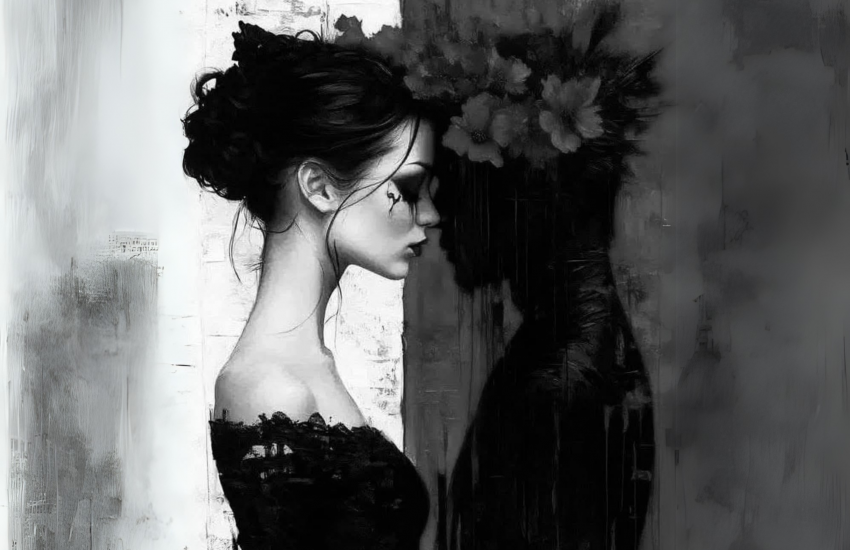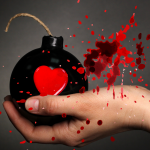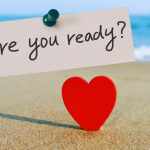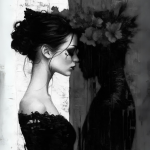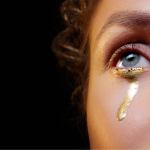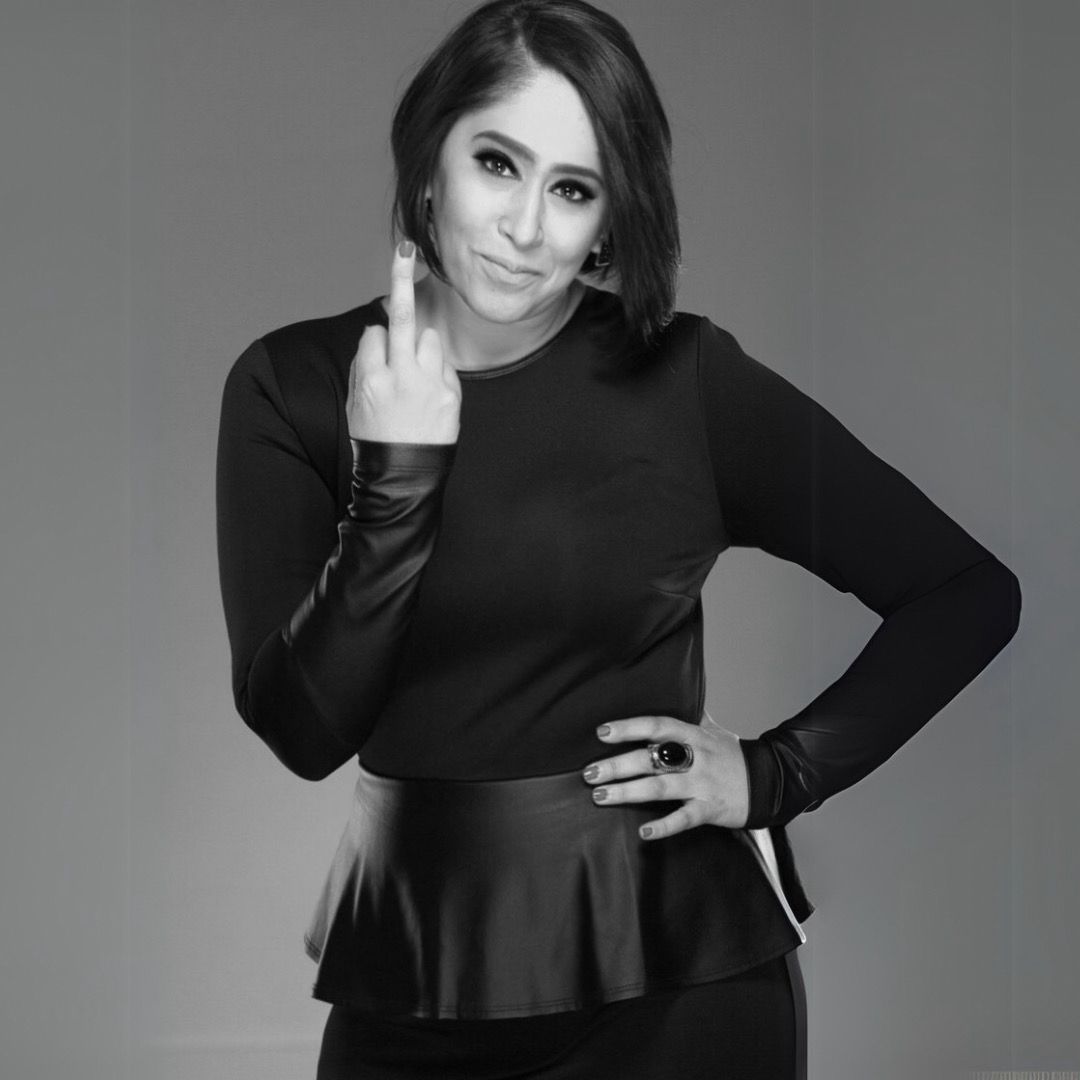Does avoidance undermine your ability to heal?
“You’re not yourself when you’re triggered. You become who you think you need to be to survive. But avoiding your triggers isn’t healing. Healing happens when you’re triggered and you’re able to move graciously through your pain, the pattern, and the story. Walk your way to a different ending.” Unknown
You can tell a lot about someone by the way they pack for a holiday. Some people roll their clothes neatly, sorting everything into labelled pouches as though they were packing for a curated life (yep that’ll be me). Others stuff things in haphazardly, bringing far too much ‘just in case’ (partly me, I mean you never know when you need that extra dress) But then there are the secret hoarders amongst us, that carry things they don’t even realise they’ve packed (not guilty). And I’m not talking about spare bikinis or emergency heels, nope, I’m talking about emotional baggage.
Yep, emotional baggage, the unseen collection of traumas, heartbreaks, disappointments, and unresolved feelings that sit quietly in the corner until, one day, it tips over and spills everywhere. Suddenly, you find yourself reacting to a harmless comment, picking a fight over nothing, or feeling abandoned because someone didn’t text back within an hour. And if you’re anything like me, when this happen, you’ve probably asked yourself, ‘Why do I keep getting triggered?’ If we’re honest with ourselves, we know why. Whether we like it or not, our past shapes our present. Every experience, especially the painful ones, leaves a mark, a little imprint on our psyche. If we don’t address the wounds, they can bubble up in the most inconvenient of places, like our relationships. Unhealed trauma is like an invisible storm cloud that follows us into new connections, affecting how we love, trust, and communicate.
Before you dive headfirst into romance (or even a casual fling). If you don’t heal, you run the risk of repeating the same patterns, sabotaging your chances for true connection, and worst of all projecting your unresolved pain onto others, cutting the very person, who didn’t make you bleed. And if there’s one thing I’ve learned, it’s that no one deserves to be held hostage by the ghosts of your past. Love deserves a clean slate, doesn’t it? And if we don’t heal our traumas the future of our relationships will always be in jeopardy.
THE WEIGHT OF UNHEALED TRAUMA
Everyone has baggage, bit of a cliché phrase if ever I heard one, tossed around to excuse those moments when someone acts irrationally or gets overly emotional. But let’s be real there’s a huge difference between carrying a chic little carry-on of life lessons and hauling a massive trunk of unresolved trauma. One is manageable; the other, well, it can weigh you down for years. Because here’s the thing about trauma, it doesn’t just disappear. You can’t just shove it into a mental cupboard and hope it stays there forever. It festers, waiting for the perfect moment to rear its ugly head. It shows up when you least expect it, perhaps when a new partner says something that reminds you of an old wound or when a seemingly harmless situation triggers memories of past pain. Unhealed traumas distort our perception. They create a filter through which we see the world, one that’s tinged with fear, mistrust, and insecurity. You’re no longer reacting to the present; you’re reacting to the past. And when this happens in a relationship, it’s a recipe for disaster.
Me, I’ve always had a fear of not being good enough, a good enough daughter, sister, aunt, partner, friend, even though I know I am. In relationships if I feel someone pulling away, I automatically revert to feeling like I’m never going to be enough for someone. Believe you and me, i’ve worked hard on this trauma and it’s not that it’s unresolved, it’s just that my brain goes into overdrive and my thoughts spiral out of control. And here’s the kicker: trauma can be sneaky, you might think you’ve moved on, convinced yourself that you’re ‘over it,’ but if you haven’t fully healed, the wounds are still there, lurking in the background. In that moment all those old feelings that you’ve worked so hard to fight come back with a vengeance. That’s why healing is so crucial, it frees you from the past, allowing you to engage with the present without those emotional landmines waiting to explode. Looks like I’ve still got some work to do.
THE ECHOES OF UNRESOLVED PAIN
Triggers are the emotional equivalent of stubbing your toe on a coffee table, it’s sharp, it’s sudden, it hurts, and it makes you irrationally angry or upset. In relationships, triggers can wreak havoc. What starts as a simple disagreement can spiral into a full-blown argument, not because of what’s going on in that moment, but because that moment is tapping into a deeper, unhealed wound. Being triggered doesn’t make you weak or overly sensitive, it just means that there’s still a part of you that’s hurting, and that part needs attention.
Triggers are like emotional alarm bells, alerting you to areas of your life that need healing. But if we don’t recognise them for what they are, we risk allowing our triggers to control us. When you’re in a relationship, unhealed trauma can turn every disagreement into a battleground. You’re no longer just arguing about the dishes or whose turn it is to pick the next Netflix show, you’re fighting old battles, reliving past hurts, and reacting to situations that aren’t even present. It’s exhausting, for both you and your partner. And let’s be honest, no one wants to feel like they’re walking on eggshells around their partner, constantly worried about triggering them. Relationships are hard enough without the added pressure of managing someone else’s unhealed pain.
THE IMPACT OF UNHEALED TRAUMA ON FUTURE RELATIONSHIPS
So, what happens when we bring our unhealed trauma into new relationships? Well, let’s just say it’s not exactly a recipe for romance. When we haven’t healed, we’re more likely to repeat the same patterns, recreate the same dynamics, and, ultimately, end up in the same kinds of toxic relationships that hurt us in the first place. Unhealed traumas manifest in different ways, but there are a few common themes that tend to show up in relationships:
1. FEAR OF INTIMACY: If you’ve been hurt in the past, it’s only natural to build walls to protect yourself. But those walls, while they might keep pain out, also keep love at bay. You think to yourself I’ve been vulnerable before, and it didn’t end well, so why risk it? But the problem with this is it prevents you from fully connecting with a partner.
2. TRUST ISSUES: Trust is the foundation of any healthy relationship, but trauma can chip away at that foundation. If you’ve been betrayed or lied to in the past, it’s easy to carry that mistrust into new relationships. But here’s the thing: mistrust breeds more mistrust. When you enter a relationship with trust issues, it creates a toxic dynamic where both partners feel on edge.
3. EMOTIONAL REACTIVITY: When we haven’t healed, we tend to be more emotionally reactive. Little things set us off, and before we know it, we’re arguing over something that, in hindsight, seems trivial. But in the moment, it feels like the end of the world. When we have unresolved traumas, we’re not reacting to the present situation, but to the pain it’s triggering.
4. SELF-SABOTAGE: Unhealed trauma can also lead to self-sabotage, especially in relationships. You might find yourself pushing your partner away, testing their limits, or creating drama where there doesn’t need to be any. You have this irrational fear of getting too close or being hurt again. It’s our way of protecting ourselves, even if it means sabotaging something good.
YOU DESERVE TO BE FREE FROM THE PAST SO HEAL YOURSELF
I know, healing sounds like hard work. And you’d be right, it is. Healing isn’t a quick fix or a one-time event. It’s a process, one that requires time, patience, and, most of all, self-compassion to yourself, but it’s worth the effort. It’s an investment in your future self, the more work you put in now, the less likely you are to keep repeating the same mistakes and falling into the same toxic patterns. It’s how you free yourself from the invisible chains of your past and step into the light of a future filled with love, joy, and healthy relationships. So if you’re ready and want to start your healing journey:
1. ACKNOWLEDGE YOUR TRAUMA: Many of us go through life in denial, convincing ourselves that we’re “fine” when, deep down, we’re anything but, believe you and me, I am the queen of that. We bury our pain, hoping that if we ignore it long enough, it will just disappear. Spoiler alert: it won’t. Acknowledging your trauma doesn’t mean dwelling on it or wallowing in self-pity. It simply means being honest with yourself about what you’ve been through.
2. SEEK PROFESSIONAL HELP: I think the Americans got this right, while self-reflection is important, healing from trauma sometimes requires external help. Having someone guide you through the healing process can make all the difference, A therapist can help you unpack your trauma, identify triggers, and develop healthy coping mechanisms. They offer a safe space for you to explore your feelings and work through the emotional pain that’s been holding you back. Trust me, there’s no shame in asking for help. In fact, it’s one of the bravest things you can do.
3. SURROUND YOURSELF WITH SUPPORT: Healing doesn’t happen in isolation. It’s important to surround yourself with people who support your growth and wellbeing. Whether it’s friends, family, or a partner, having a strong support system can make the healing journey feel less lonely.
4. LET GO OF THE NEED FOR PERFECTION: One of the biggest barriers to healing is the belief that we need to be ‘perfect’ in order to be worthy of love, we don’t. None of us are perfect, and that’s okay. Healing isn’t about becoming flawless, it about being whole & flawesome. So embrace your imperfections and own your story, when you let go of the need for perfection, you free yourself from the unrealistic expectations that keep you trapped in a cycle of self-criticism and shame.
5. HEALING IS THE KEY ATTRACT HEALTHIER PARTNERS: When you’re carrying unhealed trauma, you’re more likely to attract partners who reflect your wounds. It’s as though your unresolved pain is a magnet for people who will continue to hurt you. But when you heal, you raise your vibration. You start to attract emotionally available, kind, and respectful partners who want to love you, not fix you. Healing allows you to break free from toxic relationship patterns. You’ll no longer be drawn to partners who trigger your old wounds because those wounds will no longer have power over you. Instead, you’ll be able to choose partners who align with your values and support your growth. You’ll start to communicate better, because you’re not triggered by minor disagreements or misunderstandings, Instead of reacting defensively or shutting down, you’ll be able to express your feelings calmly and assertively and you’ll become a better listener. You’ll be more present with your partner and more empathetic to their needs. You’ll also start to set healthy boundaries, without which relationships become imbalanced, and resentment builds.
In the end, healing is the greatest act of self-love you can give yourself. It’s the decision to no longer let your past define you, to no longer let your pain control you. It’s the commitment to yourself that you are worthy of peace, joy, and love, and that you will do whatever it takes to create a life that reflects that worth. So, if you find yourself stuck in old patterns, triggered by old wounds, and afraid of repeating the same mistakes in your relationships, know that healing is possible. It won’t be easy, but it will be worth it. Because when you heal, you don’t just heal yourself, you heal your relationships, your future, and the world around you. Could anything be more beautiful?
So the next time you meet someone new, you’ll find yourself excited, instead of having that familiar knot of anxiety in your stomach, you feel… calm. You trust that they’re being honest with you. You don’t second-guess their intentions, and when they don’t reply to a text immediately, you don’t spiral into self-doubt. You communicate openly, set boundaries with confidence, and allow yourself to be vulnerable without fear of rejection. Hello authentic self, thank you for healing my past so it no longer dictates my future. 💋




